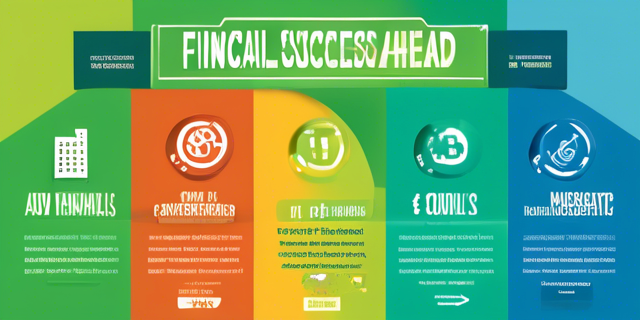Entering your 30s is a pivotal time for financial stability and growth. It’s a decade often marked by career advancements, family planning, and significant life changes. However, it can also be a time when financial missteps can have long-lasting effects. To help you navigate this crucial phase, this blog outlines key strategies to avoid common financial pitfalls in your 30s, ensuring you build a solid foundation for your future.
1. Create a Comprehensive Budget
A well-structured budget is essential for managing your finances effectively and avoiding overspending.
Budgeting Tips:
- Track Your Income and Expenses: Use budgeting apps or spreadsheets to categorize your income and expenditures, helping you identify spending patterns.
- Prioritize Needs Over Wants: Focus on essential expenses such as housing, utilities, and groceries, while limiting discretionary spending.
- Set Savings Goals: Allocate a portion of your income for savings, retirement, and emergency funds to build financial security.
2. Build an Emergency Fund
An emergency fund acts as a safety net during unexpected situations, such as job loss or medical emergencies.
How to Build Your Fund:
- Set a Target Amount: Aim to save three to six months’ worth of living expenses in a separate, easily accessible savings account.
- Automate Your Savings: Set up automatic transfers to your emergency fund each month to ensure consistent contributions.
3. Avoid Lifestyle Inflation
As your income increases, it can be tempting to upgrade your lifestyle, leading to lifestyle inflation. This can jeopardize your long-term financial health.
Strategies to Combat Lifestyle Inflation:
- Live Below Your Means: Resist the urge to increase your spending proportionally with your income. Instead, maintain a modest lifestyle and direct the extra funds toward savings or investments.
- Prioritize Financial Goals: Keep your long-term goals in focus, such as buying a home, saving for retirement, or funding your children’s education.
4. Manage Debt Wisely
Debt can be a significant financial burden, especially in your 30s. Managing it wisely is crucial for avoiding pitfalls.
Debt Management Tips:
- Create a Debt Repayment Plan: Prioritize high-interest debts first, such as credit cards, while making minimum payments on other loans.
- Avoid Accumulating More Debt: Be cautious about taking on new debt, especially for non-essential items. Consider using cash or debit cards to avoid overspending.
5. Invest for Your Future
Investing early can have a profound impact on your financial future, yet many individuals in their 30s neglect this crucial step.
Investment Strategies:
- Start with Retirement Accounts: Contribute to employer-sponsored retirement plans (like 401(k)s) and take advantage of any matching contributions. Consider opening an Individual Retirement Account (IRA) for additional savings.
- Diversify Your Investments: Explore a mix of stocks, bonds, and mutual funds to spread risk and enhance potential returns.
6. Stay Informed About Personal Finance
Knowledge is power when it comes to managing your finances. Staying informed about financial matters can help you make smarter decisions.
Ways to Educate Yourself:
- Read Financial Literature: Invest time in reading books, blogs, and articles on personal finance and investment strategies.
- Attend Workshops or Seminars: Participate in local or online financial education workshops to learn from experts and network with like-minded individuals.
7. Plan for Major Life Events
Your 30s often bring significant life changes, such as marriage, homeownership, or starting a family. Planning for these events is crucial for financial stability.
Financial Planning Tips:
- Create a Family Budget: If you’re starting a family, adjust your budget to accommodate new expenses, such as childcare and education.
- Consider Life Insurance: Protect your family’s financial future by securing adequate life insurance coverage, particularly if you have dependents.
8. Review Your Financial Goals Regularly
Your financial situation and goals can change over time, making it essential to review and adjust your plans regularly.
How to Review Goals:
- Set Annual Financial Check-Ins: Assess your budget, savings, and investment progress at least once a year to ensure you’re on track.
- Be Flexible: Adapt your financial strategies as your circumstances change, whether due to a job change, relocation, or other significant life events.
9. Seek Professional Guidance
Consider working with a financial advisor to help you navigate complex financial decisions and ensure you’re on the right path.
Benefits of Professional Advice:
- Tailored Financial Plans: A financial advisor can create a personalized plan based on your unique circumstances and goals.
- Investment Guidance: They can provide insights into market trends and investment strategies that align with your risk tolerance and objectives.

